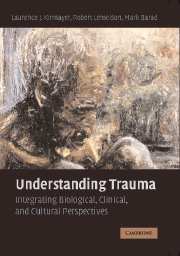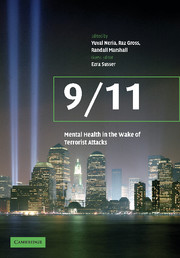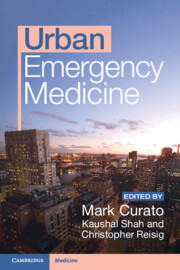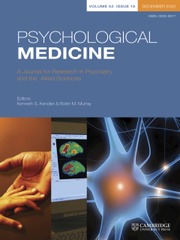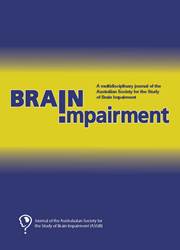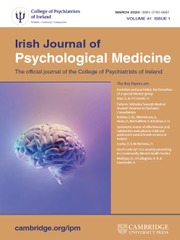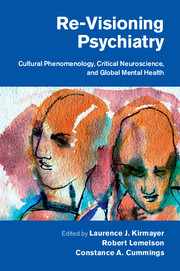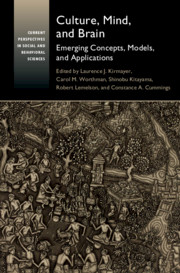Understanding Trauma
This book analyzes the individual and collective experience of and response to trauma from a wide range of perspectives including basic neuroscience, clinical science, and cultural anthropology. Each perspective presents critical and creative challenges to the other. The first section reviews the effects of early life stress on the development of neural systems and vulnerability to persistent effects of trauma. The second section of the book reviews a wide range of clinical approaches to the treatment of the effects of trauma. The final section of the book presents cultural analyses of personal, social, and political responses to massive trauma and genocidal events in a variety of societies. <br>
This work goes well beyond the neurobiological models of conditioned fear and clinical syndrome of post-traumatic stress disorder to examine how massive traumatic events affect the whole fabric of a society, calling forth collective responses of resilience and moral transformation.
- Interdisciplinarity - presents neurobiological, clinical and cultural perspectives
- Multi-level analysis - focuses on severe forms of trauma occurring within different contexts
- International in scope - chapters in both the clinical and cultural sections cover Indonesia, southeastern Asia and Africa, as well as North America
Reviews & endorsements
"... Neatly summarizes the challenges inherent in interdisciplinary
integration."
--- Psychiatric Services, A Journal of the American Psychiatric Association
Understanding Trauma is an important book. Its multidisciplinary, multicultural perspectives will benefit a wide audience. It explains the complexity of trauma so eloquently that readers will see the dots begin to connect. Its successful integration of multidisciplinary research... takes the study of trauma to the next level."
- PsycCRITIQUES
This book is a must read for anyone seriously interested in the predisposition, cause, course, treatment, and outcome prognosis for people experiencing trauma and post trauma consequences... The authors have created a state-of-the-art review that is fascinating, informative, and extremely useful to all concerned with understanding trauma and its effect on all of our lives.
- Murray A. Brown, MD
Product details
January 2007Hardback
9780521854283
548 pages
236 × 161 × 30 mm
0.91kg
6 tables
Available
Table of Contents
- Foreword Robert Jay Lifton
- 1. Introduction: inscribing trauma in culture, brain and body Laurence J. Kirmayer, Robert Lemelson and Mark Barad
- Part I. Biological Perspectives on Trauma: Introduction Mark Barad
- 2. Neurobiological and neuroethological perspectives on fear and anxiety Vinuta Rau and Michael S. Fanselow
- 3. Some biobehavioral insights into persistent effects of emotional trauma Mark E. Bouton and Jaylyn Waddell
- 4. Learning not to fear: a neural systems approach Gregory Quirk, Mohammed R. Milad, Edwin Santini, and Kelimer Lebrón
- 5. Mechanisms of fear extinction: towards improved treatments for anxiety Mark Barad and Chris K. Cain
- 6. Developmental origins of neurobiological vulnerability for PTSD Rose Bagot, Carine Parent, Timothy W. Bredy, Tie Yuan Zhang, Alain Gratton and Michael J. Meaney
- 7. Somatic manifestations of traumatic stress Emeran A. Mayer
- 8. Does stress damage the brain? J. Douglas Bremner
- Part II. Clinical Perspectives on Trauma: Introduction Laurence J. Kirmayer
- 9. Cognitive behavioral treatments for PTSD Elna Yadin and Edna B. Foa
- 10. PTSD among traumatized refugees J. D. Kinzie
- 11. PTSD: a disorder of recovery? Arieh Y. Shalev
- 12. The developmental impact of childhood trauma Bessel A. van der Kolk
- 13. Adaptation, ecosocial safety signals and the trajectory of PTSD Derrick Silove
- 14. Religion and spirituality after trauma James K. Boehnlein
- 15. Post-traumatic suffering as a source of transformation: a clinical perspective Cécile Rousseau and Toby Measham
- Part III. Cultural Perspectives on Trauma: Introduction Robert Lemelson
- 16. Trauma, adaptation, and resilience: a cross-cultural and evolutionary perspective Melvin Konner
- 17. Bruno and the holy fool: myth, mimesis, and the transmission of traumatic memories Allan Young
- 18. Failures of imagination: the refugee's predicament Laurence J. Kirmayer
- 19. Trauma, culture and myth: narratives of the Ethiopian Jewish exodus Gadi BenEzer
- 20. Post-traumatic politics: violence, memory and biomedical discourse in Bali Leslie Dwyer and Degung Santikarma
- 21. Terror and trauma in the Cambodian genocide Alexander Hinton
- 22. Trauma in context: integrating biological, clinical and cultural perspectives Robert Lemelson, Laurence J. Kirmayer and Mark Barad
- Epilogue: trauma and the vicissitudes of interdisciplinary integration Laurence J. Kirmayer, Robert Lemelson and Mark Barad
- Index.

